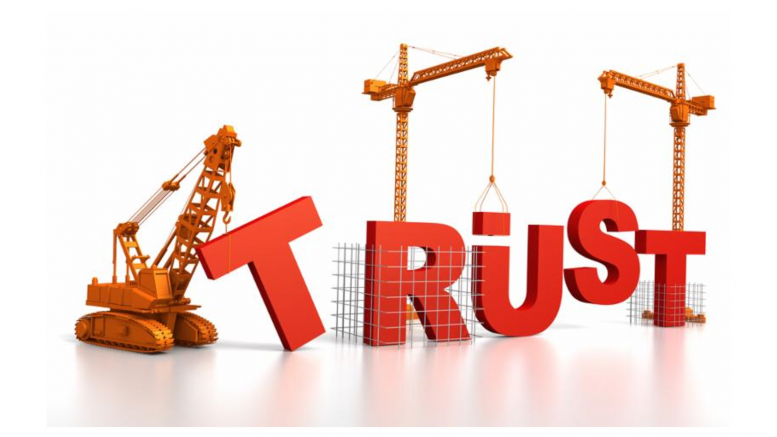With over 60 countries heading for national elections, 2024 will set the tone for the new world order. About half of the world population will cast their ballot under the shadow of geopolitical tensions fuelled by disinformation, cultural wars and growing influence of artificial intelligence (AI). Businesses are sensitive to cross border affairs as it can impact their operations. We have seen instances where companies faced severe backlash for taking a stand on social issues. They are vulnerable to constant public scrutiny for not keeping up with their ESG commitments. Like governments, corporations are also susceptible to reputational crises caused by fake news and disinformation.
In the era of growing distrust, the role of communication leaders becomes crucial in minimising the reputational risk. The recently concluded World Economic Forum at Davos highlighted challenges posed by changing regional dynamics and fast-paced technological advancements. I had the opportunity to participate in PRCAI Dialogue in Mumbai. Arun Sudhaman, CEO and Editor-in-Chief of PRovoke Media shared his learnings from Davos. He shared his insights on the impact of the current geopolitical landscape on reputation and why companies need a robust crisis communication playbook in place to navigate the information war.
Here are my key takeaways from the event.
Geopolitics is no longer a political issue
The role of corporations is not restricted to generating revenues. They are expected to play an active role in solving social issues. However, companies pay a heavy price for corporate/ CEO activism. We have seen instances where taking a stand on social issues or picking a side cost a fortune to MNCs. Corporates are now conscious about speaking about sensitive topics like wars. However, abstaining from the conversation can also portray them in a negative shade. Communication leaders should ensure that they are well educated about the sensitivities of geopolitical situations. Keep track of global affairs in general. Have a swift response mechanism to manage controversies before it gets accelerated to a full-blown reputational crisis.
Counter disinformation with facts-driven communication
With many prominent countries going for elections this year, the challenge of deep fakes and disinformation will amplify further. NewsGuard recently identified over 700 AI-generated news and information sites spanning 15 languages, operating with little to no human oversight. Technologies like AI are making it easy for anyone to paddle propaganda with little or no traces. Improving media and civic awareness seems the only long-term solution to counter the information war. The new age battle is between facts and alternative facts, and communication leaders should ensure that their organisations stand by the truth. Invest in tools to track and debunk fake news. Well-funded third-party research and influencer marketing can also help companies counter disinformation.
Understand the perils of stakeholder capitalism
One of the interesting takeaways from Davos is that ESG is no longer a buzzword in the corporate arena. Companies are dialling down ESG and replacing it with sustainability due to intense scrutiny from regulators, media and NGOs for not fulfilling their ESG commitments. Another trend is the rise of populism, nationalism and protectionism across countries. Companies are pulling back from speaking on complex issues like age old regional conflicts. Instead, they are choosing topics all agree on. Communication leaders should evaluate in which situations they should weigh in or abstain from engaging. Sometimes, staying silent is advisable to avoid controversy.
Generative AI, short format videos to redefine engagement
Generative AI will reshape the communication business both in-house and consultancy side. AI and related technologies will change how PR consultancies charge for their services. However, analyse which job functions AI can replace and which roles require human intelligence. Communication leaders should understand new age content consumption trends. For instance, short format audio-visual is popular among young generations and will be a preferred platform for telling powerful stories. Gen Zs prefer to consume content like news through short video stories. Learn to package your corporate story in 30-second videos. Brands that speak the language of their stakeholders get a competitive advantage.
Role of communicators in rebuilding trust among stakeholders
One of the highlights of the Davos summit was the increasing distrust on establishments and advanced technologies. The majority of people think that their voices are unheard and they are annihilated in the current wave of economic development. According to them, technological advances are going too fast and are biased towards wealthy people. In the era of scepticism, the role of communicators becomes vital in rebuilding trust. Purpose-driven communication is one of the ways they can build credibility and inculcate a sense of inclusivity among stakeholders. Be authentic in your storytelling and demonstrate your values through meaningful actions to win the trust of your audience.
The views and opinions published here belong to the author and do not necessarily reflect the views and opinions of the publisher.



Be the first to comment on "How Communicators Can Be Catalysts in Rebuilding Trust in a Polarised World"